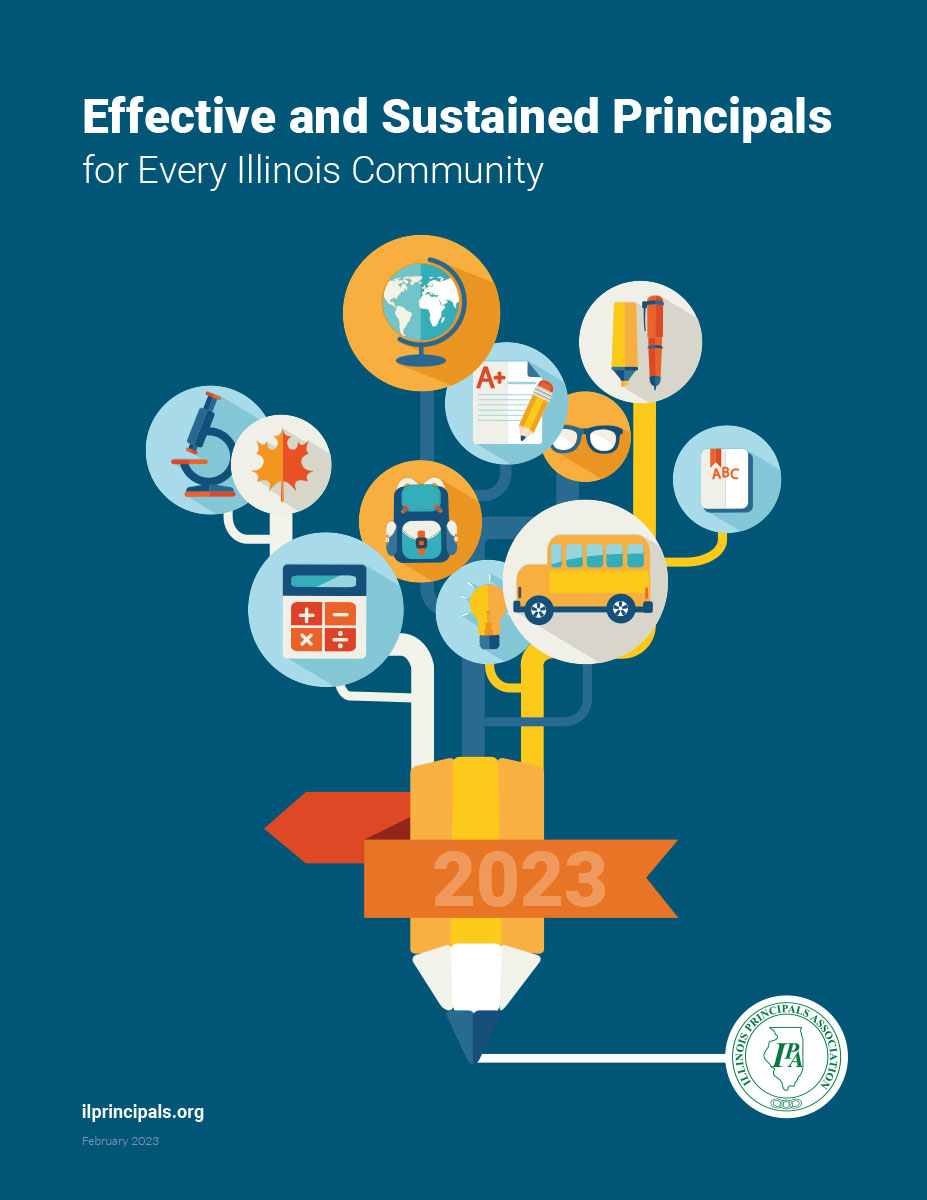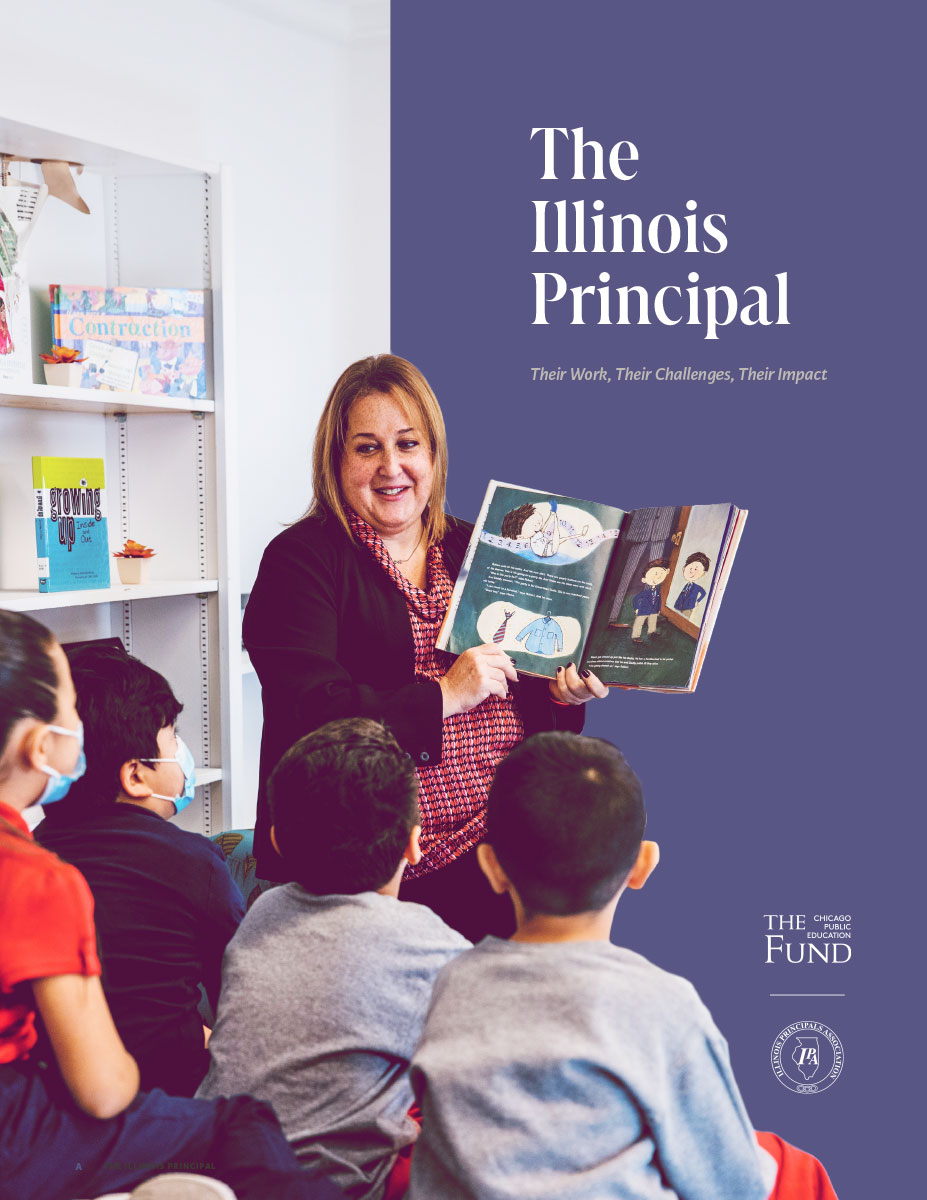Ensuring Effective and Sustained Principals for Every Illinois Community
Effective leadership, especially principal leadership, is vital to the success of every school. With adequate support, resources and time, principals can do extraordinary work to benefit their students, teachers, and communities. Unfortunately, principals today find themselves under-invested, overly stressed, and lacking the time to be effective. Thus, a high number of principals are choosing to leave the profession, and many who could be outstanding school leaders disregard the principalship as a viable career pathway.
Therefore, the Illinois Principals Association (IPA) has drafted this report, Effective and Sustained Principals for Every Illinois Community, to serve as a reminder of the critical role principals play in creating effective schools. Further, the report details the serious problem schools face with principal attrition and how attrition is exacerbated in Illinois with a dwindling pipeline. Lastly, recommendations are provided for consideration by policymakers, school districts, the IPA, and other stakeholders, to help slow attrition and bolster the principal pipeline.
 Download
DownloadThe Illinois Principal: Their Work, Their Challenges, Their Impact
Illinois school systems represent a dynamic educational landscape with challenges unique to individual schools and districts. Yet when evaluated from the school principal’s lens, overarching themes emerge that call for large-scale responses. Since principals in Chicago and across the state shoulder significant responsibilities with far-reaching effects, their voices must be at the center of any effort to address shared challenges.
Our new report, The Illinois Principal: Their Work, Their Challenges, Their Impact, is a joint effort between the IPA and The Chicago Public Education Fund. Though The Fund and IPA differ in both approach and scope, we are committed to fostering conditions that allow strong educators to lead their schools effectively. As such, we hope our findings will contribute to important conversations about education policy and practice.
 Download
Download



 Aspiring
Aspiring Launching
Launching Building
Building Mastering
Mastering








